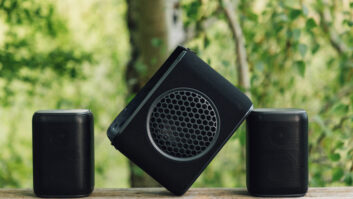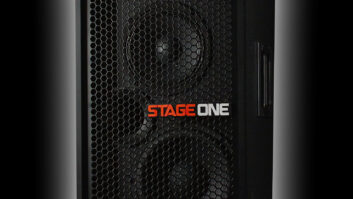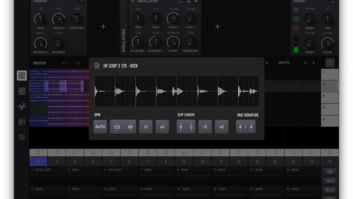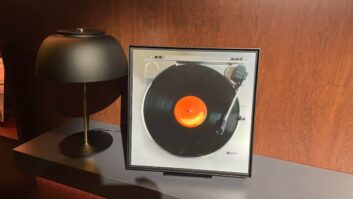
High-resolution MQA-format music playback is coming to portable music players for the first time through sister brands Onkyo and Pioneer.
Pioneer is adding MQA (Master Quality Authenticated) playback to its currently available $699-suggested XDP-100R via an update available Tuesday to the player’s native music app. For its part, Onkyo today released its $899-suggested DP-X1 portable, which will also get the MQA update on Tuesday. The Pioneer player has been available since CES.
The two portables become the world’s first MQA-enabled high-resolution audio portable digital audio players (DAPs). For U.S. consumers, they will pay back MQA files downloaded from the 7digital, Onkyo Music and 2L stores. The Technics Tracks site also offers MQA downloads, but not in the U.S.
The Wi-Fi-equipped portables will also stream MQA files from the Cloud when MQA is adopted by music-streaming sites. Tidal is expected to offer MQA streaming. “We continue to work very closely with Tidal, and there should be some very exciting announcements shortly,” said Alex Seeberg, marketing manager of MQA inventor MQA Ltd.
Both models already stream Tidal’s CD-quality service as well as Spotify.
MQA playback is also available in select Meridian home-audio products and a portable USB DAC.
Both players decode WAV, FLAC, ALAC and AIFF files, including 384-kHz/24bit WAV and FLAC files. They also decode 2.8MHz, 5.6MHz and 11.2MHz DSD files; download high-res songs via Wi-Fi from OnkyoMusic.com; and feature AptX over Bluetooth. They also run on Android and feature 4.7-inch capacitive touchscreens, 32GB storage, and two memory-card slots accepting 200GB memory cards.
How MQA Works
MQA delivers higher performance in smaller files compared with other types of high-res files because the nominal streaming rate of a two-channel MQA file is 1Mbps vs. 9.6Mbps for an uncompressed two-channel 192kHz/24-bit digital file and 18.5Mbps for a 384/24 file, MQA Ltd. has said. A three-minute MQA download takes up only 30MB of storage space on a hard drive or in flash memory compared with 150MB for a three-minute 192/24 FLAC file. The ratio is different at other sampling rates.
MQA files are much more efficient than other high-res formats because other formats use half their data rates to replicate inaudible frequencies above 20kHz. Although those frequencies can’t be heard, they are nonetheless important because they contain information on the arrival time of audible sounds, contributing to the realism of what you do hear, MQA says. Timing details are said to be critical to how listeners identify and locate sounds.
MQA captures that timing information, “folds” it without loss into the audible range to produce a smaller file, and delivers timing resolution up to 10ms, or 10 time better than that of 192/24 files, MQA Ltd. explained.
MQA-encoded music, which takes PCM form, can be placed inside any lossless-audio file “container” such as FLAC, ALAC or WAV. An MQA decoder can be built into hardware, or it can take the form of an app for a smartphone or PC.
For backward compatibility, an MQA-encoded file played back on a device lacking an MQA decoder will deliver better-than-CD quality.













